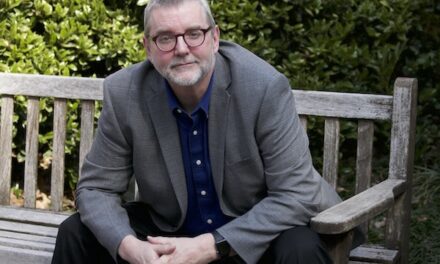Each season, the Variations Concerts are fund raisers for the BMC Institute and Festival. Though few in number compared to the classical music and opera concert schedule, they tend to be high-profile pop-oriented headliners to encourage “giving” to the cause and certainly to attract new audience to the grounds. And consider this: what would it be worth to you to hear Burt Bacharach alone at the piano, under a solo spot, softly singing Alfie? This is a guy who has been celebrated for distinctive melodies, sophisticated style, and a light classical feel that has produced 52 top forty hits!
Pretty strong, eh?
Burt Bacharach arrived in Brevard with ten musicians and a truck full of instruments. He played the house piano but occasionally spun around to work at an electronic keyboard that, when in piano mode, sounded more like a grand piano than the nine-foot Steinway on the stage! In the band were a violin, bass, drums and percussion, trumpet, Flugelhorn, woodwinds, two additional keyboard stations programmed with a variety of sounds, and three tremendous singers in Josie James, John Pagano, and Donna Taylor.
He opened with “What the World Needs Now Is Love,” and the ears immediately picked up the distinctive horn arrangements and melodic settings that seem so obvious. Perhaps that is one of the secrets of successful song composers. Bacharach spent all his time at center stage playing piano, conducting with a head toss or raised fist or rising from his seat to punctuate a cadence or transition; thus he intensely established the beat of every piece. His piano accompaniment was filled with baroque embellishments, and he took obvious delight in each signature key change.
Though his main role was playing, he could be seen singing along-– though not audibly – and the whole program was really like a huge nightclub act structured as a series of medleys. Imagine! The repertoire encompassed arrangements of “(The Man Who Shot) Liberty Valance,” “Only Love Can Break a Heart,” “Don’t Make Me Over” (Bacharach’s first hit, with Diane Warwick), “(They Long to Be) Close to You,” “Anyone Who Had a Heart,” “Walk On By,” “(There’s) Always Something there to Remind Me,” “A House Is not a Home,” “What the World Needs Now Is Love,” “What’s New Pussycat?,” “I Say A Little Prayer (for You),” “This Guy’s in Love with You,” “Do You Know the Way to San Jose,” “Raindrops Keep Falling on My Head,” “I’ll Never Fall in Love Again,” “Arthur’s Theme” (“The Best That You Can Do”), “That’s What Friends Are For,” and of course Alfie.
He also performed a few tracks from his most recent recording, At This Time, released November 1, 2005. It features collaborations with Elvis Costello, Rufus Wainwright, and Dr. Dre (who provided bass-and-drum loops). Judging from the restrained remarks made on stage, it would appear this is a protest recording dedicated to his “indignation over the state of the world.” He made clear his message is in the songs and that he chooses not to harangue audiences from the stage with his personal politics. But it was also very clear that he is troubled by the quality of leadership in Washington, D.C.
His live singing voice has a few cracks, and when he does sing, his voice doesn’t sound so great – I mean, if we’re actually at a nightclub and it’s 2:00 a.m., that’s one thing, but in this concert setting little flaws tend to draw attention. But nobody seemed to mind. The packed house enjoyed every minute of the two-hour program. The arrangements were solid, the musicians were great and they all appeared to be having a good time, and the evening ended, as it had begun, with “What the World Needs Now Is Love.”
Bacharach belongs in the same class as Henry Mancini. Though they are working in different genres (jazz v. pop), there is no mistaking a specific style, an almost infectious pleasure, the memorable tunes, and Bacharach’s highly skilled understanding of form. All are hallmarks of great music – in any century.











